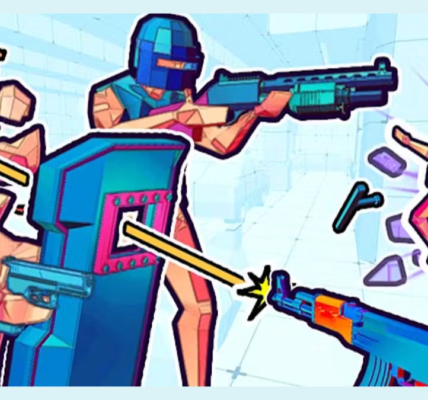this is a given nyt crossword are a popular form of entertainment, enjoyed by many people around the world. One type of crossword puzzle that has gained significant attention is the “This is a Given” NYT crossword. These puzzles are known for their unique clues and clever wordplay, making them both fun and challenging. The New York Times (NYT) is famous for its daily crossword, which many puzzle lovers eagerly anticipate each day. The “This is a Given” theme often appears in these puzzles, providing solvers with a delightful experience.
In this article, we will explore the concept of “This is a Given” in the context of NYT crosswords. We will discuss how this theme enhances the solving experience, the types of clues you might encounter, and some tips for solving these puzzles. Whether you are a seasoned crossword expert or a beginner, understanding this theme can improve your puzzle-solving skills and make the experience more enjoyable.
What is the this is a given nyt crossword?
this is a given nyt crossword refers to clues that hint at something obvious or widely accepted. These clues often have straightforward answers that are common knowledge. For example, if the clue reads, “Water is wet,” the answer would simply be “wet.” This theme adds a layer of humor and wit to the crossword, as solvers are led to realize that the answer is something they already know.
The charm of this theme lies in its simplicity. It allows solvers to feel a sense of accomplishment when they quickly identify the answer, reinforcing their knowledge and making the puzzle-solving experience rewarding. As solvers progress through the puzzle, they may also encounter more complex clues that challenge their thinking and enhance their skills.

Clue Types in “This is a Given” Puzzles
In “This is a Given” puzzles, clues often take various forms, including puns, straightforward statements, and general knowledge questions. Some clues might play with words or require lateral thinking, while others simply state facts. Here are some examples of the types of clues you might find:
- Straightforward Statements: These clues directly state something that is commonly accepted. For example, “The sky is blue” could have the answer “blue.”
- Puns and Wordplay: Some clues use humor or clever wordplay to convey obvious answers. An example could be “This is a form of self-care: ___ (Hint: a soothing drink),” leading to the answer “tea.”
- General Knowledge: These clues may refer to well-known facts or historical figures. For instance, “This person wrote the Declaration of Independence” could lead to the answer “Jefferson.”
- Common Expressions: Clues might also refer to popular sayings or idioms. A clue like “This is the saying when something is guaranteed” could have the answer “sure thing.”
- Simple Descriptions: Some clues offer a straightforward description of the answer. For example, “This is where you put your keys” could have the answer “pocket.”
Understanding these clue types can make solving the “This is a Given” crossword puzzles more enjoyable. Recognizing patterns in the clues can help solvers anticipate answers and enhance their overall crossword-solving skills.
Tips for Solving “This is a Given” NYT Crossword Puzzles
Solving NYT crossword puzzles, especially those with the “This is a Given” theme, can be both fun and challenging. Here are some tips to help you navigate these puzzles more effectively:
- Start with the Easy Clues: Begin by tackling the clues that seem obvious or straightforward. These answers will help you fill in letters for the more challenging clues, giving you a better chance of solving the puzzle.
- Look for Patterns: Pay attention to common patterns in crossword clues. For example, if you see clues that hint at a definition or a widely accepted fact, they may follow the “This is a Given” theme.
- Use Crossword Resources: Don’t hesitate to use crossword-solving resources, such as dictionaries or online databases. These tools can provide hints and help you find the right answer when you get stuck.
- Practice Regularly: The more you practice solving crossword puzzles, the better you will become. Make it a habit to complete the NYT crossword regularly to improve your skills and confidence.
- Stay Relaxed and Enjoy the Process: Remember that crossword puzzles are meant to be fun! If you find yourself stuck, take a break, grab a snack, or come back to the puzzle later. Enjoy the challenge, and don’t stress about completing it perfectly.
Conclusion
The “This is a Given” NYT crossword puzzles offer a unique and enjoyable experience for solvers. By incorporating obvious clues and clever wordplay, these puzzles challenge solvers while providing a sense of accomplishment. Understanding the theme and the types of clues that appear can enhance your crossword-solving skills, making the process more enjoyable and rewarding.
Whether you are a newcomer to the world of crossword puzzles or a seasoned expert, embracing the “This is a Given” theme can add a new dimension to your puzzle-solving experience. With practice, patience, and a willingness to learn, you can conquer even the most challenging NYT crosswords. Happy solving!
FAQs
Q: What does “This is a Given” mean in crossword puzzles?
A: It refers to clues that hint at obvious answers or widely accepted facts, making them easier to solve.
Q: How can I improve my crossword-solving skills?
A: Practice regularly, start with easier clues, look for patterns, and use crossword resources to help you.
Q: Are “This is a Given” puzzles suitable for beginners?
A: Yes, they are great for beginners as they often contain straightforward clues that help build confidence.
Q: Can I use online tools to help with crossword puzzles?
A: Absolutely! Online dictionaries and crossword solvers can assist you when you get stuck.
Q: Is the NYT crossword available for free?
A: The NYT crossword is typically available through a subscription, but there are often free versions or sample puzzles online.





